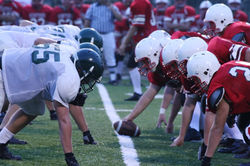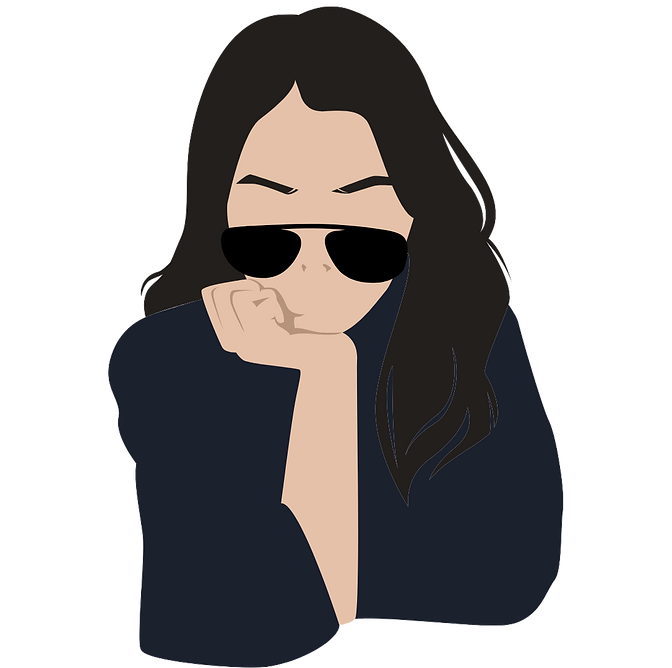SIMON FRASER UNIVERSITY
McMaster University is located in Hamilton, and comprises 57 buildings, 122 programs, and over 21 500 students [1]. It was first established in the year 1887 and is split into six different academic facilities: Degroote School of Business, Engineering, Health Sciences, Humanities, Social Sciences, and Science [2] . They’re known as the McMaster Marauders with their mascot named “Mac the Marauder.” The institution is home to over 300 student organizations and clubs, however, they do not recognize any fraternities or sororities [2]. Their main academic policy is known as the “McMaster Model,” which focuses on a student-centred, problem-based, interdisciplinary approach to learning which has been used since the 1960s [2]. Only 3700 students live in twelve on-campus residences with a range of building sizes and dormitory styles [1]. Finally, McMaster University is a member of a group of research intensive Canadian universities known as the U15 [2].
 |  |
|---|---|
 |  |
 |  |
 |  |
 |  |
 |  Public Speaker |
 Bald Eagle |
|---|
SIMON FRASER UNIVERSITY
 |  |
|---|---|
 |  |
 |  |
 |  |
 |  |
 |  Public Speaker |
McMaster University is located in Hamilton, and comprises 57 buildings, 122 programs, and over 21 500 students [1]. It was first established in the year 1887 and is split into six different academic facilities: Degroote School of Business, Engineering, Health Sciences, Humanities, Social Sciences, and Science [2] . They’re known as the McMaster Marauders with their mascot named “Mac the Marauder.” The institution is home to over 300 student organizations and clubs, however, they do not recognize any fraternities or sororities [2]. Their main academic policy is known as the “McMaster Model,” which focuses on a student-centred, problem-based, interdisciplinary approach to learning which has been used since the 1960s [2]. Only 3700 students live in twelve on-campus residences with a range of building sizes and dormitory styles [1]. Finally, McMaster University is a member of a group of research intensive Canadian universities known as the U15 [2].
 Bald Eagle |
|---|
Check out McMaster's official socials...
RA
NK
IN
GS
#
72
72
IN THE WORLD
#
4
4
IN CANADA
 |  |
|---|---|
 |  |
 |  |
 |
According to the 2020 Times Higher Education World University Rankings
Check out McMaster's official socials...
 |  |
|---|---|
 |  |
 |  |
 |
RA
NK
IN
GS
#
72
72
IN THE WORLD
#
4
4
IN CANADA
According to the 2020 Times Higher Education World University Rankings

3
QUESTIONS
For a former UWO Engineering Student...
JUICY
2
What is some advice you would give high school students when applying to your program?
My biggest advice would be to keep your grades up! Obviously grades don't mean everything, but admissions at Western are primarily grade-based, and keeping your marks at or above the admissions average is going to be your best bet
for getting in your program of choice. Specifically for engineering, there are so many prerequisites that your admissions average is not necessarily going to be your "top 6" - they will be using your marks from difficult classes like math, chemistry, and physics, so don't expect to rely on easy electives to increase your GPA. Having good grades will also open up doors to automatic entrance scholarships, as well as many very generous upper-year scholarships reserved for engineering students if you can keep up this trend throughout your undergrad. However, if you weren't able to get the grade you wanted for whatever reason, Western Engineering recognizes that your report card don't always tell the whole story; there's a supplementary application called the CONNECT Profile where you can showcase your leadership, passion, and extracurriculars to give your application a deserved boost.
What's it like to be a first year student at Western?
I would say that I'm pretty satisfied with my first year experience. I was lucky to have a lot of good study habits coming out of high school, so that I didn't have much trouble coping with the transition academically. The social aspect of suddenly being surrounded by students 24/7 was a little overwhelming too, but I can say that the rez programming and soph system are top notch and really go out of their
way to make you feel at home.
Because engineering at Western has a general first year, you'll likely share your schedule with a pretty large cohort, which makes making friends easier within your program. I joined a lot of clubs in my first year to explore some new hobbies and meet other like-minded people, but I do wish I had committed more fully to one or two and taken on some leadership roles instead of spreading myself so thin.
1
Why did you choose your program? What makes it unique to you?
As a math and science nerd in high school, engineering was a natural choice for me as I could continue study math and physics while opening the door to a straight-forward career path with lots of job opportunities. A cool aspect of the engineering program is that not only do you gain those hard math and science skills, but you're also required to learn practical knowledge like business, safety, and ethics.
What makes Western's program unique in particular is the sheer flexibility offered - you can combine your engineering degree with virtually any other degree program including Law, Business (Ivey HBA), and
Music. This is awesome if you want to explore another interest as normally you won't have room for electives in an engineering program. The HBA/engineering dual degree is a really popular choice, I highly recommend for any student interested in Western to consider checking it out, as HBA is basically Western's flagship program.
4
What extracurriculars did you do in high school?
In high school I played table tennis, rugby, and swam for my school team, and dabbled in a few student organizations like Model United Nations, Aspiring Young Doctors, and Science Club, the latter which resulted in an exec position. Outside of school, I mainly focused on my performing arts activities (practicing piano at a concert level and preparing for competitions). As an IB student I also had to complete 300 CAS hours (100 each
of Creativity, Action, and Service). I will say however that extra-curriculars are not really crucial for a lot of Canadian university admissions unless you're aiming for a major entrance scholarship - it really depends on the school and program so do your research early. Instead, use your extracurriculars for personal development, making a difference in your community, and HAVING FUN! Do something that you enjoy and feels meaningful to you, as the skills and experiences you come out with are going to be more valuable in the long-term than the boost to your application.
5
How would you describe the workload and work-life balance in your program?
Work-life balance is a major challenge in any engineering program just because of the number of courses you're required to take and their difficulty. You will likely be overloading almost every semester, and plus the courses are primarily time-consuming subjects such as math, physics, etc. I struggled a lot to find a
good work-life balance in my first year, because I wanted to keep up my grades, but I found myself turning down social events and activities to do so. A really good way to get around this is to join study groups and engineering build teams, as being in a group can help your motivation to study and work through tough problems together, while also having the opportunity to relax and chill with friends.











